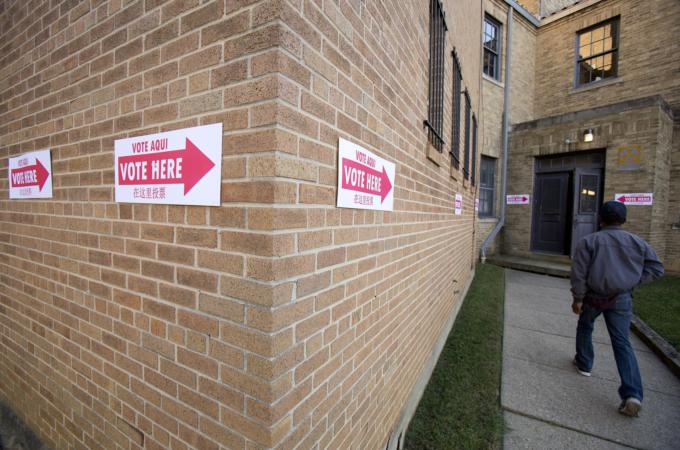How would Jesus vote?
Now that Labor Day is behind us, campaign season is in full swing. And in what we've learned to expect of all things 2020, everything about this year's elections is even more intense than usual. I have to admit that I'm sick of hearing people say that "this election is THE single most important one of our lifetime." The truth is that hype-meisters and pundits sing the same song every four years. But there is something about this political cycle that seems all wrong, something that makes me wonder how I ever managed to love politics.
Before information was available 24/7/365, I always enjoyed keeping up with local and national news. It was exciting to watch conventions and debates, and the competitive aspect of running for office was always something of a sport. There were certainly things to disagree about. But we all believed that everyone involved in the political process loved our country. We all expected that whichever party or candidate won an election would assume leadership graciously, and whichever party or candidate lost would accept the will of the people, regroup, and try again. Growing up, I never knew who my teachers voted for. In fact, I'm not sure I knew who my own family members voted for. The secret ballot was sacrosanct. As a result, I never lost a friend over an election. And I never had reason to suspect that there was anything insidious or evil about anyone voting his or her conscience.
It's a shame that's not how it is anymore. Now our political opinions hold sway in almost every aspect of our lives. We no longer spend time with -- or even know -- people who don't see things the way we do. And that's because it's just too much of a threat. We can't trust a Republican. We couldn't possibly be friends with a Democrat. For those who are comfortably red or blue, only one thing is certain: the country's future is secure only if your team wins by a margin big enough to silence the opposition. There's no room for other perspectives.
Recently, there has been some rather divisive election-year chatter within the Church. While some have asked whether a faithful Catholic can be a Democrat, others have questioned whether a devout Catholic can, in good conscience, be a Republican. Of course, the answer to both those rather facetious queries is yes. One can be Catholic and a Democrat, and one can be Catholic and a Republican.
What I wonder, though, is which identity really takes precedence? Do we support a candidate or party because we are Catholic? Do we embrace our identity in Christ Jesus and his Church more closely than we hold onto every other aspect of who we are that might otherwise define us? And, too, in many regions of our country it may be worth asking if you're expected to keep the free exercise of your faith inside a church on Sunday mornings and leave it outside the voting booth on Tuesdays in November. In other words, are active Catholics truly welcome in any of our political parties?
As the next several weeks unfold, we ought to remember that character does matter, but so does policy. When we cast a ballot, we are supporting both a person and an agenda. An honest and hardworking candidate who promotes policies that do not honor the dignity of the human person isn't any better than a corrupt politician who supports all the right platform issues. The choice is simple only when good people advocate good ideas. Those options don't seem to be in great supply.
How would Jesus vote? The answer may be more difficult to discern than we want to believe. It may also make a lot of us uncomfortable enough to more prayerfully consider what we will do with the responsibility and privilege given to us. Pray first. Then vote.
- Jaymie Stuart Wolfe is a Catholic convert, wife, and mother of eight. Inspired by the spirituality of St. Francis de Sales, she is an author, speaker, and musician, and serves as a senior editor at Ave Maria Press. Find Jaymie on Facebook or follow her on Twitter @YouFeedThem.



















